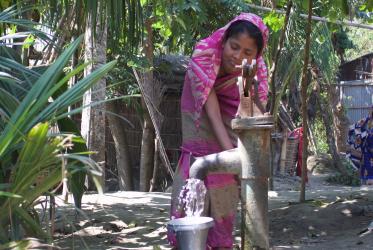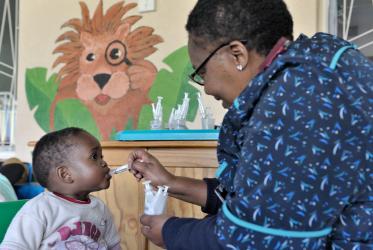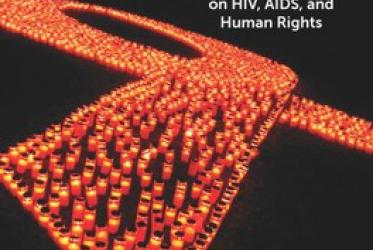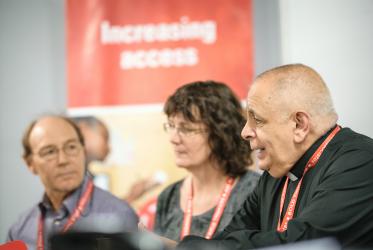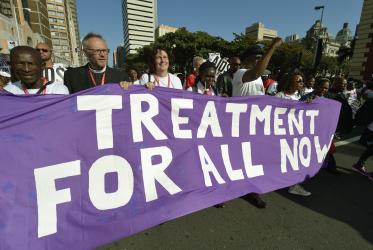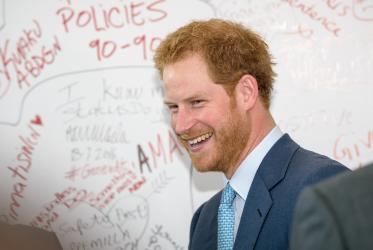Displaying 1 - 20 of 41
WCC Eco-School 2021 for Pacific region on Water, Food and Climate Justice
22 - 28 February 2021
Faith and HIV treatment go hand in hand
06 March 2019
Turning mercy and compassion into action
04 March 2019
On the journey to HIV – bridging gaps, debunking myths
21 February 2019
Dialogue addresses improving HIV testing and treatment for children
10 December 2018
UN discussion focuses on women, HIV and property rights
21 March 2017
Lead by example: get HIV tested
30 November 2016
WCC book featured in UN discussion on gender, religions and health
16 September 2016
Star power shines light on AIDS epidemic
21 July 2016

